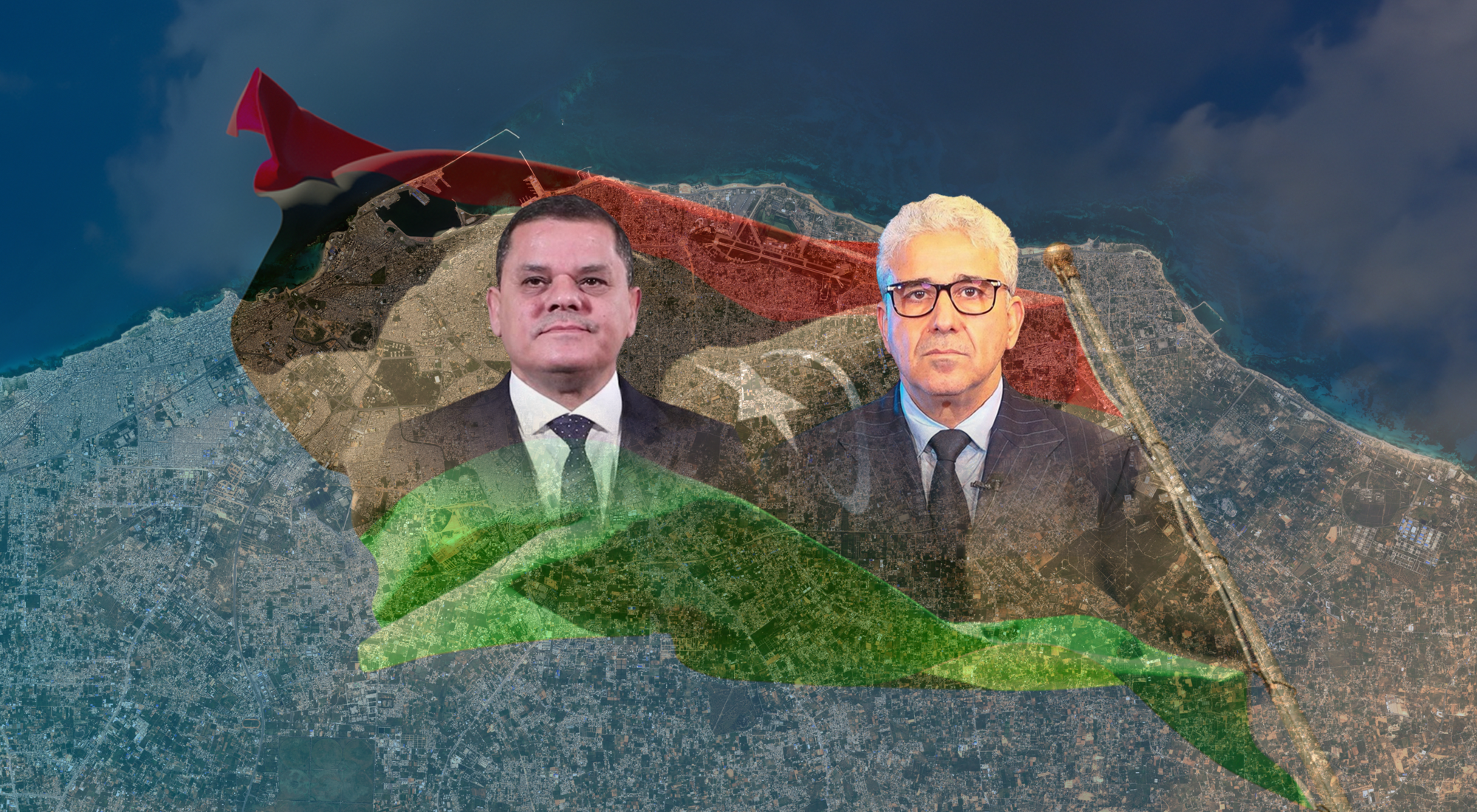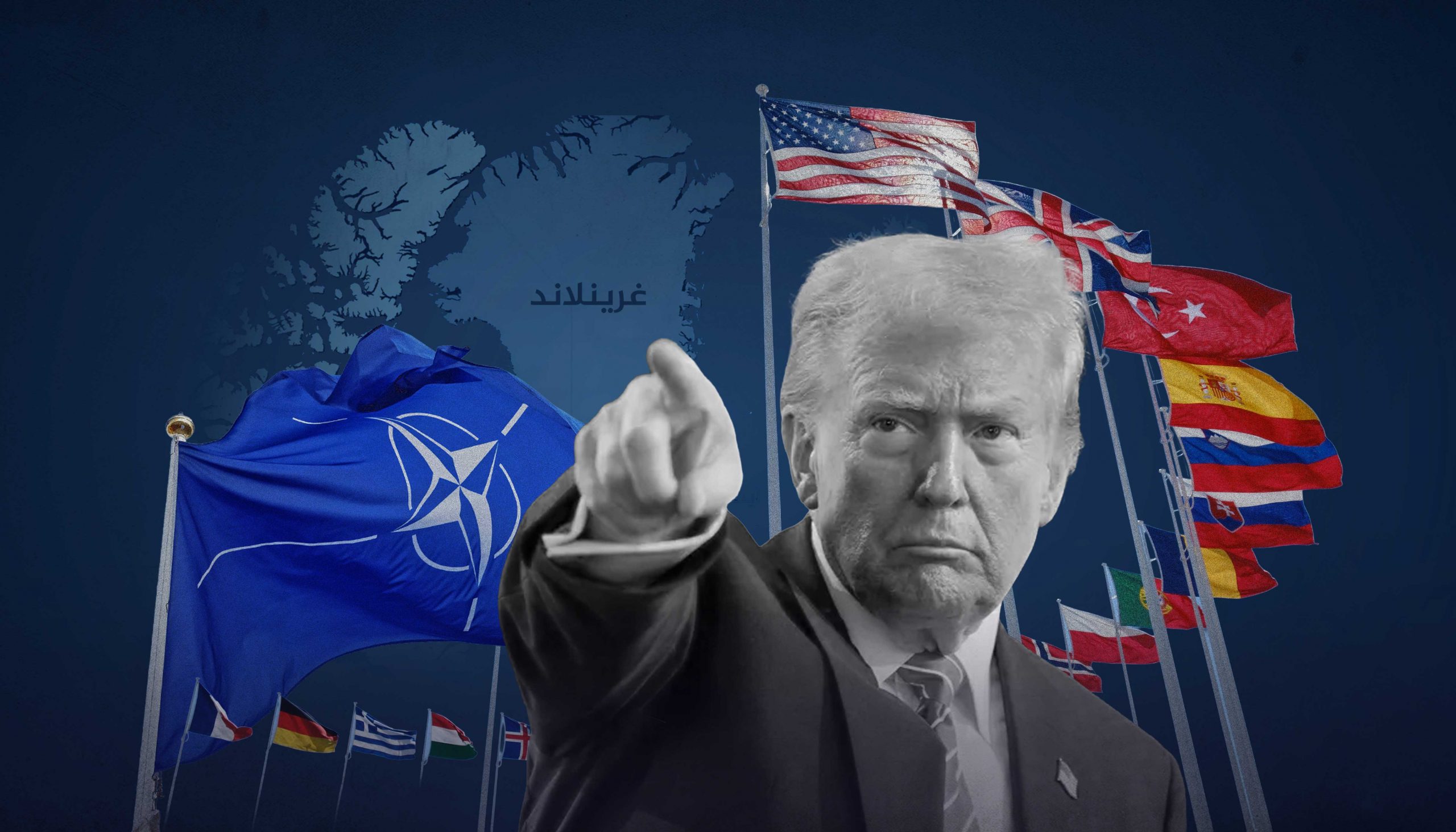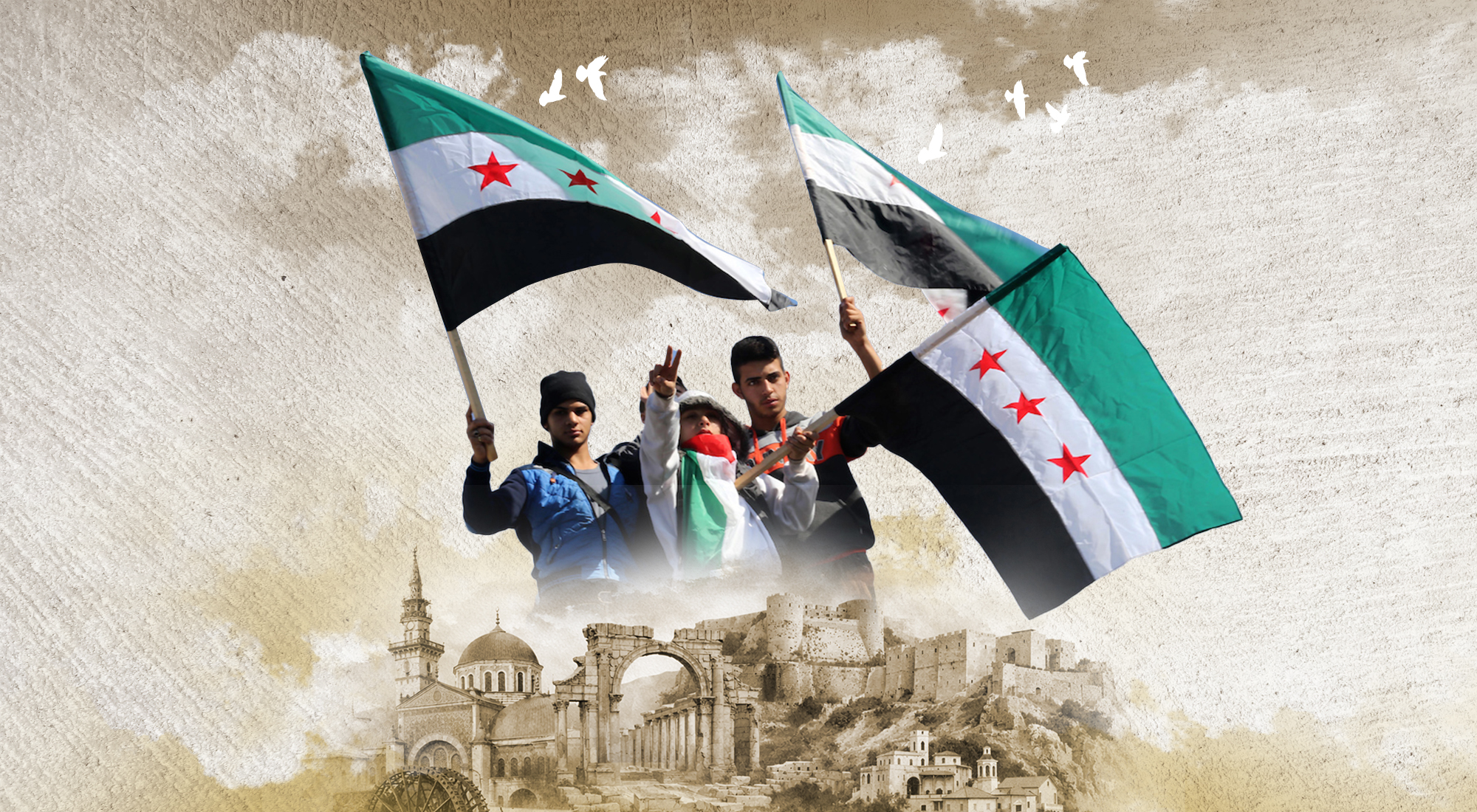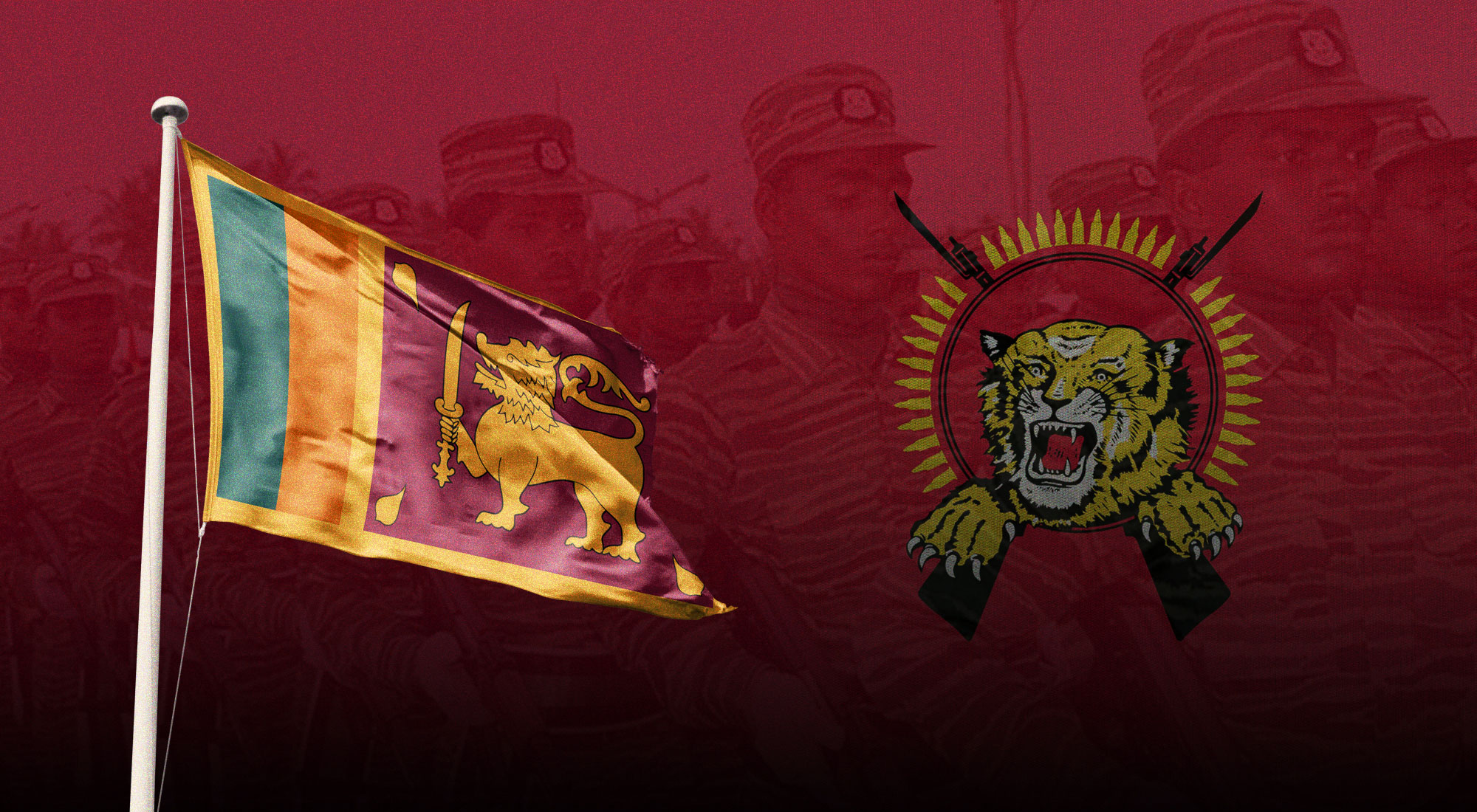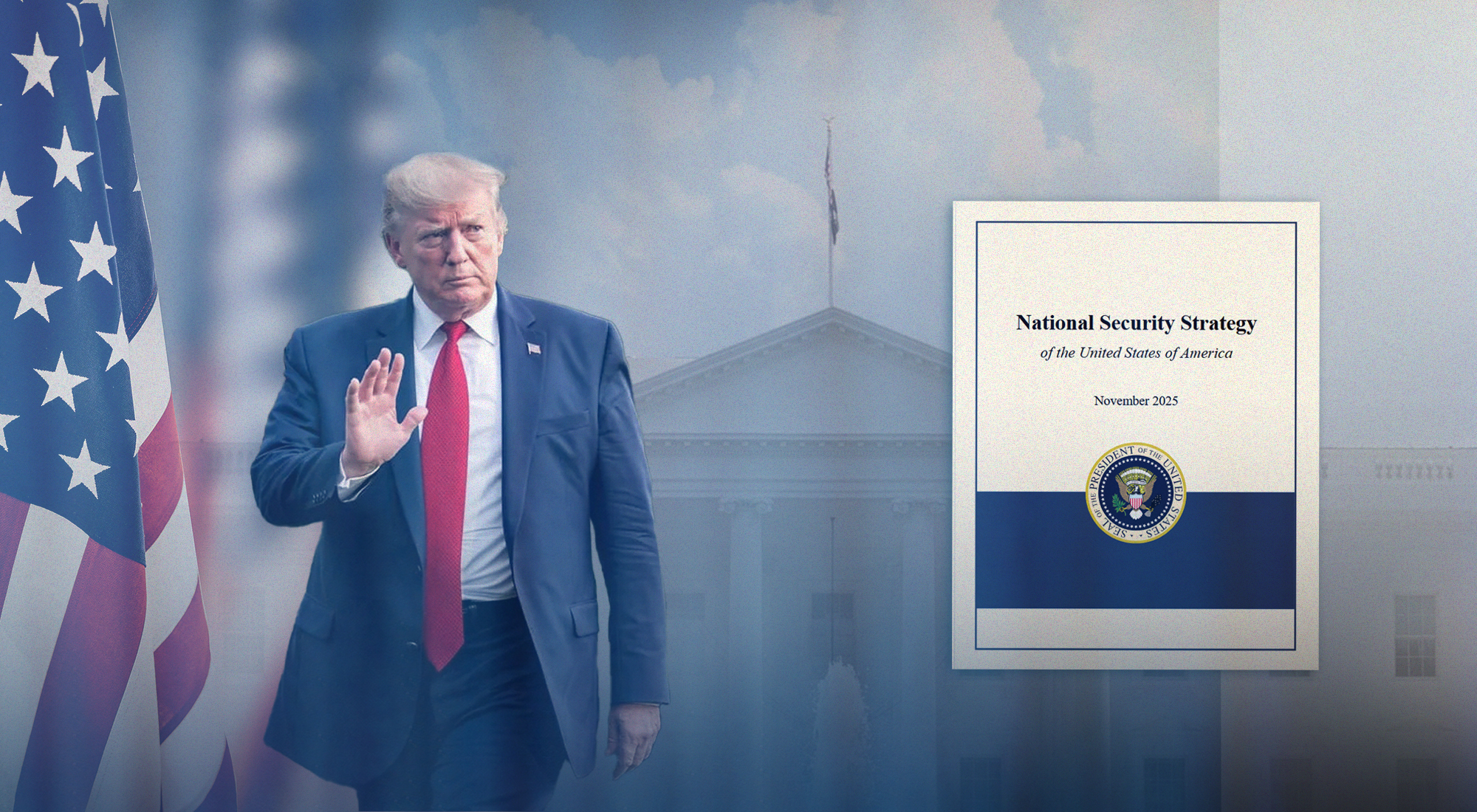Libya looks at political uncertainty… and a possible silver lining
On 10 February 2022, Libya witnessed a new development that was quite bizarre, even by the standards of that tormented country – two prime ministers each claiming to be the legitimate leader of the country. This development epitomized the binary split that has defined national affairs for the last eight years. Libya now has two rival international coalitions, two armed forces, a bipartite central bank in which the treasury is run by one faction and the currency mint by another, and now two governments in the capital city of Tripoli.
The House of Representatives (HOR) in Tobruk appointed former interior minister, Fathi Bashagha, as the country’s prime minister, abruptly signalling the end of the Government of National Unity (GNU), headed by Abdul Hamid Dbeibah, which had been in place in Tripoli since March of last year. Dbeibah, however, has refused to accept his removal and insists he will remain in place until national elections yield a new government. On February 28, Bashagha announced his 41-member Council of Ministers and, on the next day, won an overwhelming vote of confidence in the HOR. Reflecting Libya’s deep divisions, this vote is controversial, with doubts being expressed about the presence of representatives in the House and the methods used to obtain their vote.[1] Dbeibah has rejected the vote as “fraudulent” and reiterated that his administration would continue in “business-as-usual” mode till elections are held in June, as proposed by him. The swearing-in of ministers on March 3 was also chaotic, with three prospective ministers being detained in Tripoli by armed militia, and the airspace over Tripoli and Misrata being closed by the Dbeibah government to prevent prospective ministers from travelling to Tobruk.
The influences behind these developments lie far away. Turkish president Recep Tayyip Erdogan visited Abu Dhabi on Feb. 14th, marking a dramatic rapprochement between Turkey and the United Arab Emirates, which could end the decade-long stalemate in Libya.
Breakdown of state order
A decade after the fall of former leader, Muammar al-Gaddafi, following widespread agitations supported by Western military interventions, Libya has remained mired in contention, conflict, and displacement, as rival factions, backed by external players, have sought leadership control and a major share of spoils from the energy-based coffers of this broken polity. Throughout this period, the United Nations has made several efforts to broker peace and encourage a political process (there have been six special envoys so far), but these initiatives have failed to reconcile the competing groups who are divided by ideology and ambition.
The first elections in June 2014 yielded the HOR located in Tobruk, but its legitimacy was challenged by the Tripoli-based General National Congress, many of whose members belonged to the Justice and Construction Party that was affiliated with the Muslim Brotherhood. In November of that year, the Supreme Court revoked the elections on the ground that the Election Law Committee had violated Libya’s provisional constitution. The HOR rejected the court’s verdict, claiming it had been secured through coercion from armed militia. Thus, Libya had two governments — the executive in Tripoli and the legislature in Tobruk — with neither recognising the other as legitimate.
As a result of shuttle diplomacy by the UN, an agreement was reached in October 2015, establishing a nine-member Presidency Council and a 17-member interim Government of National Accord (GNA). The HOR was retained but renamed “Higher Council of State” and was intended to function as an advisory and legislative body. The UN Security Council recognised the GNA as “the sole legitimate government of Libya,” mandated to provide Libya with governance, stability, and economic development.[2]
At this stage, a new player entered the fraught political scenario: General Khalifa Haftar, who later assumed the rank of Field Marshall. A former officer in Gaddafi’s army, Haftar’s objective was national unity under his leadership, through military force. He declared that he had the “popular mandate” to rule the country and put in place “the necessary conditions to build the permanent institutions of a civil state.”[3]
In March 2015, the HOR made Haftar the head of the Libyan National Army (LNA), though later that year the army split into two wings; one under Haftar’s control and another under the GNA. In July 2017, Haftar took control of Benghazi, Libya’s second-largest city, and projected himself as the opponent of supporters of the Muslim Brotherhood, as well as of the extremist militants from Al Qaeda and Daesh, factions of which had sprouted up in different parts of the war-torn country. This posture earned him the backing of external players in Libyan politics: Egypt, the UAE, France, the United States, and Russia.
With substantial foreign military assistance, Haftar mounted “Operation Flood of Dignity” in April 2019 to take Tripoli. The goal, as proclaimed by him, was to save Libya from despotic criminal militias and Islamist extremists.[4] Over the next year, over 2,000 people were killed in the fighting and another 150,000 displaced. The LNA was backed by mercenaries from the Wagner Group (Russia’s private military company), Sudan, Chad, and other African countries.
Haftar’s rampage was halted when a new player on the Libyan scene intervened – Turkey. In November 2019, Turkey signed an agreement with the GNA to provide military advisers, weaponry, air defence systems, and drones, as well as several thousand militants from the Free Syrian Army. In return, the GNA entered into a maritime agreement with Turkey that defined the exclusive maritime economic zones of Turkey and Libya in the East Mediterranean. Turkey’s claims to the East Mediterranean encroach on the existing claims of Greece and Cyprus to the subsea natural gas reserves, and have been rejected by both countries as well as Egypt.[5]
The UN, backed by various European states, made several attempts at a ceasefire, eventually culminating with the Berlin Communiqué of 19 January 2020, which was supported by United Nations Security Council members and the regional European, African, and Arab groups. The Communiqué set up the UN-supported “5+5 Military Committee”, which brought together five military officers from the east of Libya and five from the west of the country. However, despite the Berlin agreement, fighting continued for several months until members of the Military Committee finally negotiated a ceasefire in October 2020. Libya’s current east-west divide reflects the traditional faultline between the region of Tripolitania in the east and Cyrenaica in the west. This division had been largely subdued during the authoritarian rule of Gaddafi from 1969 until his overthrow in 2011, though he is believed to have privileged the west during his rule. Since then, Libya has splintered along its traditional divide; the ongoing conflict is one region seeking to take control over the entire country.[6] Today, the Tripoli government, backed by local militia and external support from Turkey, controls the northwest of the country, including Tripoli and Misrata, two of Libya’s major cities. The government in Tobruk controls the east, centre, and south of the country, mainly through Haftar’s military forces. Haftar also controls most of the country’s oil fields, though production and export are managed by the Tripoli-based National Oil Company.
Run-up to the present imbroglio
The Libyan Political Dialogue Forum (LPDF), made up of 74 Libyan politicians from different parts of the country, was created in the aftermath of the ceasefire. This forum was tasked with appointing a three-member Presidency Council and a Prime Minister who would head the Government of National Unity (GNU). The GNU would remain in place till 24 December when elections would be held for the presidency and the national assembly. The forum also upheld Libya’s sovereignty and territorial integrity and called for the withdrawal of all foreign troops and mercenaries. Given the deep national divisions, the forum also provided for the selection of candidates by majority voting rather than consensus.
After three months of hectic lobbying by aspirants to high office, on 5 February, the LPDF voted for the Presidency Council to be headed by Mohammed al-Menfi, and chose Abdul Hamid Dbeibah as Prime Minister. Al-Menfi and Dbeibah, who took office on 15 March 2021, received just 39 votes out of 74, defeating by a narrow margin the other list of candidates that included HOR speaker Aguila Saleh for the Presidency Council, and former Interior Minister Fathi Bashagha for Prime Minister.
With Menfi being from the east and Dbeibah from the west, the new government projected a semblance of national unity. However, the appointments were criticised from the outset. Within three days of the selections, two distinguished commentators wrote that the LPDF “is widely seen as bringing together opportunistic, greedy politicians with little legitimacy or influence.”[7] They described the three Presidency Council members as relative lightweights, but noted that Dbeibah was influential since he and his cousin had “used the wealth they dubiously amassed as public sector executives under Gaddafi to fund several armed factions in their native Misrata.”
With the GNU in place, the country’s High National Electoral Commission (HNEC) began arranging the process for the proposed elections. Since there was no time to prepare a fresh constitution and a new electoral law, Saleh issued the electoral law by decree, without obtaining a formal vote in the assembly. The decree proclaimed that presidential elections would take place on 24 December, followed by national assembly elections a month later.
The three principal candidates for the presidency had dubious credentials. Haftar’s candidacy was initially rejected by the election commission but was later accepted on appeal. There were doubts about his citizenship; it was thought he had US citizenship, which would have disqualified him. He was not seen as a democrat or a source of national unity and stability. His principal support base was in the east and south, but he enjoyed practically no backing in the west, where the bulk of the Libyan population resided.
The other candidate was Saif al-Islam Gaddafi, the second son of the former dictator of Libya. He based his appeal on the nostalgia among some voters for the peace and stability that had prevailed in the country during his father’s rule, hoping that this would erase memories of the harsh tyranny that had defined his long tenure. In an interview with the New York Times, Saif al-Islam proclaimed that his former prison guards “are now my friends” in an attempt to portray himself as a benign figure to an international audience. Here again, the election commission failed to get him disqualified, while his associates saw him as the most popular candidate.[8]
The most surprising candidate was Dbeibah. On his appointment as Prime Minister, he pledged not to be an aspirant for the presidency. He also violated the rule that required him to resign from political office three months before the election, but the courts ruled in his favour. While in office, Dbeibah increased public sector wages, benefits for the unemployed, and loans for weddings in an attempt to broaden his political appeal. He also built ties with powerful military groups in the east, while reaching out to both Cairo and Ankara. However, opponents from the east in his own government criticised him for unilateral and “dictatorial” decision-making.[9]
As the election neared, commentators expressed doubts about the election serving any useful purpose. Alison Pargeter pointed out that the Tripoli-based administration in the east and the Tobruk-based HOR in the west “are operating in separate orbits” and doubted that their divisions would be healed by the election.[10] Al Jazeera’s Robert Falk pointed to the ongoing conflicts and instability due to foreign militants and the deeply flawed state institutions to emphasise that Libya needed a genuine peace process rather than elections.[11] Just 10 days before the election, Sami Hamdi wrote that the U.S. was pushing for the election to take place since it wanted a “quick fix” to obtain political legitimacy, which had eluded the country for so many years. But he believed the election would serve no such purpose even if it took place – it was very likely that the Libyan parties would simply not accept the results, particularly since the main candidates “were associated with autocracy” and would not surrender their ambitions regardless of the outcome.[12]
In the run-up to the elections, there were already signs of unrest and tension, with armed personnel and tanks patrolling the streets of Tripoli. Just two days before the scheduled elections, the Parliamentary Election Committee announced that based on technical, judicial, and security reports, “it will be impossible to hold elections on the date set by the elections law.”[13]
Through January, Saleh made it clear that Dbeibah’s continuation in office was not acceptable since his tenure had ended on 24 December. Dbeibah rejected this and asserted that he would continue as head of the GNU until elections were held. He began cabinet meetings in Tripoli, while the HOR convened in Tobruk to consider the proposals of its “roadmap committee” with regard to the next steps in the political process. Saleh announced that the HOR would meet in early February to appoint a new government, which Dbeibah described as a “desperate attempt to renew division.”
On 10 February, the HOR announced the appointment of Bashagha as Prime Minister, thus imposing two parallel governments on the beleaguered country. The HOR justified this step by pointing out that Dbeibah had lost all credibility by becoming a presidential candidate despite his earlier pledge not to do so, and then failing to resign as prime minister three months before the elections. The HOR also proposed the setting up of a new election commission and a 24-member committee to draft a new constitution. However, the soldiers of the Tripoli-based joint operations forces backed Dbeibah through public demonstrations, with a few hundred military vehicles, in major eastern cities such Tripoli, Misrata, Khoms and Zlitan.
Regional diplomatic churn
The remarkable developments in Libyan politics reflect the ongoing churn in regional diplomatic ties, particularly Turkey’s outreach to the UAE and Egypt. Until recently, Egypt and the UAE were actively opposed to the Turkish role in Libya, while their protégé, the HOR in Tobruk, had been sharply critical of Turkey’s backing of the Tripoli government; Saleh even described the Turkish military presence as an “occupation force.” The UAE and Egypt had firmly opposed Turkey’s affiliation with the Muslim Brotherhood, seeing the rise of Islamist parties in the region “as an existential threat to their survival.” They had also been concerned about Turkey’s expanding role in Middle East affairs as part of its quest for regional hegemony[14] and had extended full support to Haftar’s forces in the 2019-20 conflict.[15]
Much has changed since then. In May of last year, a Turkish delegation visited Cairo and began the process of normalising relations. There has been a similar forward movement in Turkey-UAE ties. It began with the visit to Ankara in August last year of the UAE National Security Adviser, Sheikh Tahnoun bin Zayed. This was followed three months later by the high-profile visit of Sheikh Mohammed bin Zayed, Crown Prince of Abu Dhabi and de facto ruler of the UAE, who promised to invest $10 billion in the ailing Turkish economy. In January, the UAE entered into a $5-billion currency swap agreement that boosted Turkey’s foreign exchange reserves. Erdogan’s visit to Abu Dhabi and Dubai on 14 February was another leap forward, referred to by CNN as a “stunning rapprochement,”[16] while UAE Presidential Adviser Anwar Gargash described it as “a new positive page in the bilateral relations.”[17]
This new camaraderie is primarily due to decreasing concerns among GCC countries about the regional influence of Islamist parties, particularly the Muslim Brotherhood, which has removed a major source of animosity between Turkey and several neighbouring Arab states.[18] Another influential factor is conflict-fatigue; the wars in Syria, Yemen, and Libya have caused much destruction, but have not yielded any military results. This has encouraged the external participants in these confrontations to pursue fresh diplomatic options and, in the post-pandemic period, to prioritise economic partnerships.
This serves the interests of both Turkey and the UAE. Turkey’s economy is experiencing inflation of about 50%, while its currency has also lost half its value against the dollar. The UAE too is reorienting its foreign policy engagements, moving from a substantial military investment in its regional outreach to what the Jordanian commentator Mohammed Barhouma has described as “focusing more on diplomatic solutions and soft power to consolidate its economic interests and trade partnerships.”[19]
Outlook for Libya
The political impasse in Libya is being overturned by new initiatives that have emerged from changes in regional calculus. The impact of Turkey’s rapprochement with Egypt and the UAE, for example, was immediately apparent a week before the presidential elections when, on 15 December, some HOR members travelled to Ankara, signalling a new east-west alignment in Libya.
On 19 January, the Turkish ambassador to Libya, Kenan Yilmaz, met with Saleh in Tripoli. Ten days later, the ambassador visited Benghazi, where he met parliamentarians and municipal officials and announced that Turkey would be opening a consulate in that city.[20] There can be little doubt that the ambassador discussed with Saleh and other HOR members the plan to install Bashagha as Prime Minister. A week later, on 4 February, the influential Egyptian daily, Al Ahram, reported that Saleh had brought about an “unexpected rapprochement” between Haftar and Bashagha.[21] This confirms that Bashagha’s appointment has the backing of the eastern heavyweights Saleh and Haftar, as well as the blessings of their regional partners.
Libya is now at a crossroads. It could be looking at a replay of the earlier “one-country, two-governments” scenario, with continued confrontation and periodic conflict, or we could be seeing the first stage of a unity government, headed by Bashagha, and backed by Saleh and Haftar, with the new accommodative approach being carefully orchestrated by Turkey, Egypt, and the UAE working in tandem. This would be achieved by easing out Dbeibah, which a recent report suggests could be accomplished through an agreement between Bashagha and Haftar that promises Haftar the defence portfolio that is presently held by Dbeibah.[22]
The central issue being debated in Libya today is the holding of elections. The UN Special Adviser on Libya, Stephanie Williams, has called for the early initiation of “a credible political process” based on the “broadest possible consensus,” but this is precisely what is missing in the Libyan scenario.[23] What the binaries that reflect Libyan politics want is to entrench themselves in power and drive out the other without the benefit of an inclusive and transparent electoral process. Dheibah is hoping to ingratiate himself with Williams and sections of the international community, particularly the U.S. and its European allies, by promising elections in June this year. This is obviously unrealistic: there is no constitutional framework in place, while the election commission itself has said it needs eight months to prepare for fresh elections. This has led to calls for the revival of the now-closed Constitutional Chamber of the Supreme Court by Dheibah and civil society activists, but this is likely to be as divisive as every other political issue in the country.[24]
There have been so many false starts toward reconciliation in the Libyan entanglement over the last decade that it is difficult to believe that the country is now on the road to peace. The surprising turnaround in relations between Turkey, Egypt, and the UAE, however, gives reason for optimism for a conciliatory approach between the Eastern and Western power blocs in the country.
Sadly, this optimism could be misplaced. Despite conciliatory moves abroad, Libya desperately needs political leaders who put national interests and popular welfare above their personal benefits. Such statesman-like conduct and approach has not been apparent in Libya for several years.
References
[1] Sami Zaptia, “Legality of HoR Confidence Vote in Bashagha Government Questioned,” Libya Herald, March 1, 2022, Legality of HoR confidence vote in Bashagha government questioned – LibyaHerald.
[2] Mohammed Cherkaoui, “Libya’s Zero-Sum Politics and Defiance of Legitimacy – Part 1,” Afro-Middle East Centre, June 9 2020, Libya’s Zero-Sum Politics and Defiance of Legitimacy – Part 1 | Al Jazeera Center for Studies.
[3] Mohammed Cherkaoui, “Libya’s Zero-Sum Politics and Defiance of Legitimacy – Part 2,” Al Jazeera Centre for Studies, May 14 2020, Libya’s Zero-Sum Politics and Defiance of Legitimacy – Part 2 (aljazeera.net).
[4] Christopher M. Blanchard, “Libya: Conflict, Transition, and US Policy,” Congressional Research Service, April 13 2020, p. 4, Libya: Conflict, Transition, and U.S. Policy (congress.gov).
[5] For details see Ahsen Akdemir, “The Turkish-Libyan Maritime Deal: What are the Implications?” Politics Today, December 16 2020, The Turkish-Libyan Maritime Deal: What Are the Implications? – Politics Today.
[6] Two distinguished scholars have recently argued that “the current conflict has largely been due to the asymmetric and artificial dominance of Tripolitania over the other two regions, particularly Cyrenaica.” (Theocharis N. Grigoriadis and Walied Kassem, “The Regional Origins of the Libyan Conflict,” Middle East Policy, November 18 2021, The Regional Origins of the Libyan Conflict – Grigoriadis – 2021 – Middle East Policy – Wiley Online Library).
[7] Emadeddin Badi and Wolfram Lacher, “Agree to Disagree: Libya’s New Unity Government,” Carnegie, February 8 2021, Agree to Disagree: Libya’s New Unity Government – Carnegie Endowment for International Peace.
[8] Mustafa Fetouri, “Gadhafi’s Son Shakes up Libyan Elections,” Al Monitor, December 16 2021, Gadhafi’s son shakes up Libyan elections – Al-Monitor: The Pulse of the Middle East.
[9] Alison Pargeter, “Libya Hoped Its Elections Could Heal the Country. Instead, They Could Make It Worse,” Middle East Eye, October 26 2021, Libya hoped its elections could heal the country. Instead, they could make it worse | Middle East Eye.
[10] Ibid.
[11] Thomas O. Falk, “Why Libya’s Upcoming Election Raises More Questions Than Answers,” Al Jazeera, December 1 2021, Why Libya’s upcoming election raises more questions than answers | Elections News | Al Jazeera.
[12] Sami Hamdi, “Ongoing Dysfunction of Libyan Politics Threatens Elections,” Inside Arabia, December 14 2021, Ongoing Dysfunction of Libyan Politics Threatens Elections (insidearabia.com).
[13] Mona El-Naggar and Vivian Yee, “A Tense Libya Delays Its Presidential Election,” New York Times,
December 22 2021, A Tense Libya Delays Its Presidential Election – The New York Times (nytimes.com).
[14] Ferhat Polat, “The UAE in Libya: Continuity and Change,” TRT World Research Centre, September 2021, UAE_Libya.pdf (trtworld.com).
[15] Ibid.
[16] Jomana Karadsheh and Eoin McSweeny, “How Two Middle East Powerhouses Fell Out, Then Made Up,” CNN, February 14 2022, UAE-Turkey: How two Middle East powerhouses fell out, then made up (msn.com).
[17] Natasha Turak, “Erdogan’s UAE Visit Affirms Shift in Relations, Help for Turkey’s Economy,” CNBC, February 15 2022, Erdogan’s UAE visit affirms shift in relations, help for Turkey’s economy (cnbc.com).
[18] Hussein Ibish, “Erdogan Visit Underscores UAE-Turkey Rapprochement Is at the Heart of Regional De-escalation,” AGSIW, February 15 2022, AGSIW | Erdogan Visit Underscores UAE-Turkey Rapprochement is at the Heart of Regional De-escalation.
[19] Mohammed Barhouma, “The Reshaping of UAE Foreign Policy and Geopolitical Strategy,” Carnegie,
January 4 2022, The Reshaping of UAE Foreign Policy and Geopolitical Strategy – Carnegie Endowment for International Peace.
[20] Mustafa Fetouri, “Cairo Quiet as Ankara Reaches out to Eastern Libya,” Al Monitor, February 2 2022, Cairo quiet as Ankara reaches out to eastern Libya – Al-Monitor: The Pulse of the Middle East.
[21] Ahmed Eleiba, “Libya’s Political Transition: The Fog Ahead,” Ahram Online, February 4 2022, Libya’s political transition: The fog ahead – World – Al-Ahram Weekly – Ahram Online.
[22] Sean Mathews, “Fathi Bashagha: Libyan Tyre Trader Wheeling and Dealing for Power,” Middle East Eye, February 12 2022, Fathi Bashagha: Libyan tyre trader wheeling and dealing for power | Middle East Eye.
[23] Alessandra Bajec, “Libya’s Conundrum: From Collapse of the Elections to Renewed Political Split,” The Tahrir Institute for Middle East Policy, March 9 2022, Libya’s Conundrum: From Collapse of the Elections to Renewed Political Split – The Tahrir Institute for Middle East Policy (timep.org).
[24] “Legal disputes Put Libya on the Brink of a New Political Division,” Teller Report, March 14 2022, Legal disputes put Libya on the brink of a new political division – Teller Report.



